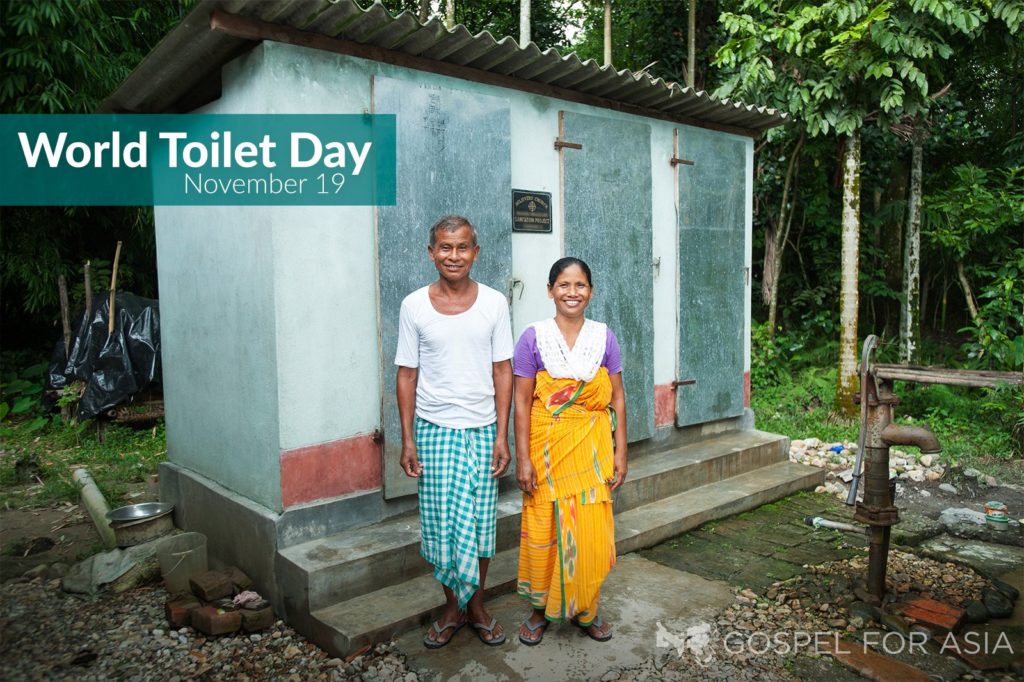The first step in any advance in any realm of our human experience begins with an awakened awareness. Psychologists tell us that we can’t help someone until they realize that they need help. That is why it is difficult to help an addict who says, “I don’t have a problem.” They have yet to come to a point where they are aware – and willing to admit – that they actually do have a problem.
The opposition of awareness is ignorance. The Apostle Paul warned the churches at Corinth, Rome, and Thessalonica about the dangers of being ignorant of the truth. When we are ignorant of the truth, we make bad decisions.
Ignorance is the underlying problem behind many bad practices, not the least of which is the practice of open defecation. The United Nations established World Toilet Day in 2013 specifically “to encourage behavioral change” because open defecation is “extremely harmful to public health.”
UN Resolution “Sanitation for All”:
Recognizes the role that civil society and non-governmental organizations (NGOs) play in raising awareness of this issue. It also calls on countries to approach sanitation in a much broader context that includes hygiene promotion, the provision of basic sanitation services, and sewerage and wastewater treatment and reuse in the context of integrated water management.
According to UNICEF, around 892 million people practice open defecation: going to the toilet in the streets, fields, and bushes near their homes.[1] More than half of this group – approximately 520,000,000 people – live in India, around 40% of the national population.[2]
“The Government’s Clean India Mission aims to construct 90 million household and community toilets in rural India and eliminate open defecation across the country by 2019.”
Gospel for Asia (GFA) and its national partners have been deeply concerned about reducing open defecation practices for nearly 40 years. Like the UN, we have long realized that building toilets does not solve the problem. It is one thing to build a toilet or latrine. It is quite another to help the people for whom open defecation has been a cultural practice for centuries.
Many of these people are unaware that properly constructed and maintained toilet facilities are much safer in many ways, particularly for better health and preservation of life. Assuming that “the way they have always done it” is the proper way, they make a mistake that brings ill health and death to their families and their communities.
Gospel for Asia (GFA)-supported representatives and of the Sisters of Compassion in the state of Uttar Pradesh, made special efforts on November 19 this year doing precisely what the United Nations has recommended – raising awareness on World Toilet Day among various rural villages and urban slums.
The elimination of the practice of open defecation takes a concerted effort between government and NGOs. The UN rightly observes that NGOs can do a better job of raising awareness while toilet construction must be underwritten by government funding in order to erect enough facilities to achieve the Open Defecation Free Sustainable Development Goals.
Gospel for Asia (GFA) partners have provided tens of thousands of toilet facilities for families and communities and have made those people aware of the need to use the toilets and keep them clean.
Ministering in the Baheda, Bukharpur, Saperabasti, and other villages, Sisters of Compassion and BEC Sunday school classes held awareness programs to explain the dangers of open defecation and the proper use and maintenance of toilet facilities.
Sisters of Compassion also taught villagers how to clean already-built toilets in their villages. This is important to note because of the culturally inherent stigma associated with toilet cleaning that leaves facilities in unhealthy conditions. Their willingness to do what others don’t was just another example of the extent to which the Sisters – and all of us – should be willing to go to demonstrate and help others to become aware of the love of Jesus.
To read more news on the need for toilet facilities to combat open defecation practices, go here.
[1] UNICEF 2017 Progress on drinking water, sanitation and hygiene: 2017 update and SDG baselines
Sources:
- Gospel for Asia Field Reports: World Toilet Day
- Water.org, What we see in a toilet
- United Nations, World Toilet Day 19 November
Image Source:
- Gospel for Asia, Photo of the Day
For more information about this, click here.





